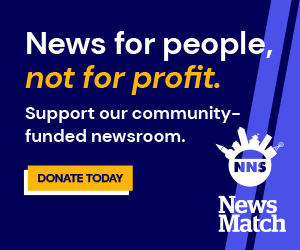OPINION: Black Americans still lag in COVID-19 vaccination rates. We must use culturally attuned strategies to address the issue.

[ad_1]
Editor’s note: Have something on your mind? “Community Voices” is the place to let Milwaukee hear what you have to say. To be considered, we need your name, email address and phone number for verification. Please email your submissions to info@milwaukeenns.org

When America gets a cold, the Black community gets pneumonia.

This is a saying that is well known to many who pay attention to topics of health care and health equity in this health-compromised and vulnerable population in America.
Yes, there have been colds, there has been pneumonia, and now there is COVID-19. Once again, those who can least accommodate another health epidemic are the most adversely affected.
As a national advocate for equity and a research consultant for the national We Can Do This COVID-19 vaccination campaign, these are not just my musings.
Look at the data.

According to the Centers for Disease Control and Prevention, Black individuals are about twice as likely to be hospitalized or die from COVID infections than their white counterparts. They also report that pregnant Black women are twice as likely to die than their white counterparts if the cause is the COVID-19 virus.
Studies are pending regarding the effects of known variants of the virus on this same population, but there is no evidence to date to suggest that the data will positively affect the current disparate results.
However, COVID vaccination rates for the Black community still lag behind their white counterparts on all levels (primary vaccine series and additional vaccine doses).
Representing nearly 13% of the U.S. population, the Black community is one of our country’s communities hit hardest by the COVID pandemic.
According to the Centers for Disease Control and Prevention Data Tracker, on Sept. 14, 43.3% of the Black population was fully vaccinated. This was the lowest among all races/ethnicities.
Research data, both primary and secondary, has disclosed several barriers viewed by the Black community as it relates to receiving the vaccine. Barriers identified were a failure to believe messaging around the benefits of the vaccines due to a reliance on sources that were not research documented and a lack of trust in traditional providers and the current health care delivery system.
Simply providing the vaccine in community locations was not enough to drive individuals to the sites, and other strategies were necessary to increase engagement and decision-making around the virus itself and ways to attack it that include vaccination and other preventive measures.
According to research conducted as part of the We Can Do This COVID-19 Public Education Campaign, several culturally related strategies were identified to address this issue.
The use of culturally linked partnerships with known entities (e.g., Black sororities, fraternities, social and fraternal organization), culturally targeted media programming where trusted messengers reflect the community of interest, and culturally targeted community outreach (activities in the community during community meeting times) rose to a priority level after the community was interviewed regarding their thoughts on the vaccines.
Data identified as barriers by other sources also indicated that hours when vaccinations were available were not conducive to access, as they impacted work hours and school activities.
Other barriers included a lack of transportation to several of the vaccine sites due to public transportation interruptions. There was also discussion around the lack of ease of registration for the vaccine and presenting information about the vaccine in an understandable fashion for the non-medical community.
It is clear that all those involved in the vaccine rollout must respect this message and those that carry the message, with a targeted effort on increasing trust in the health delivery systems through the removal of institutional barriers that continue to exist.
There is no “one size fits all” when it comes to addressing health equity issues. We must find the size that fits this adversely affected segment of the American family if we want the outcomes to be different. We too are America.
And that’s Real Talk!
Dr. Joan Prince is a native of Milwaukee and is a consultant on CMRignite’s Research Team. She was the first African American recipient of a bachelor’s degree in medical technology and master’s in clinical laboratory sciences, with a specialty in hematology and flow cytometry from the University of Wisconsin-Milwaukee. In 2012, President Barack Obama nominated Prince as an alternate representative to the 67th General Assembly of the United Nations, with the honorary rank of ambassador. CMRignite is a subcontractor to the Fors Marsh Group for the We Can Do This COVID-19 Public Education Campaign.
[ad_2]
Source link

